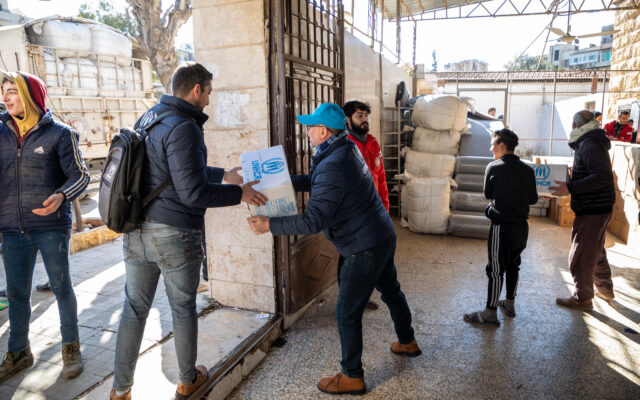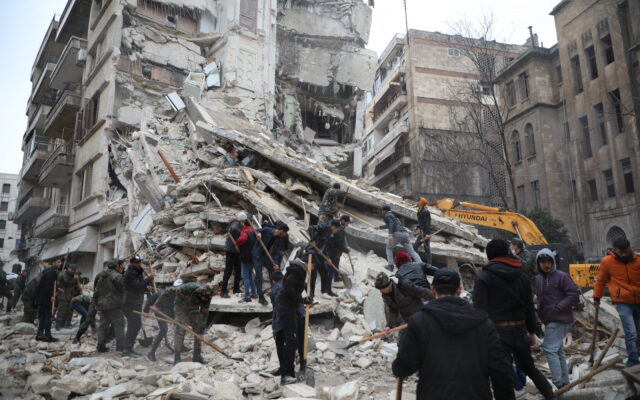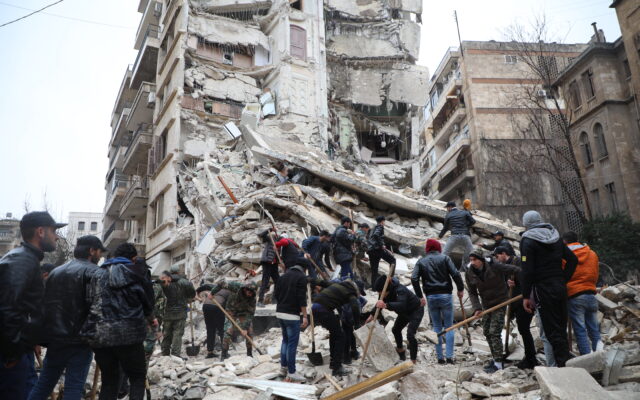“My family’s life shattered for the second time”
UK for UNHCR Trainee Deema shares her story of fleeing Syria, and how her family were impacted by the earthquakes in Türkiye.
25.04.23
Deema joined UK for UNHCR’s Traineeship programme in September 2022 and gained experience in various roles across the charity before choosing to specialise in Due Diligence research. She completed her 6-month traineeship and has secured an extended contract to continue working in Due Diligence at the next level.
—
My name is Deema. I’m a Syrian refugee and I live in the UK with my husband and three beautiful children.
I’m originally from Idlib but I moved to Aleppo to study, where I stayed and got married.
In 2013, my life was shattered when my family and I were forced to flee our home and country due to the ongoing conflict.
We really didn’t want to leave. Although we managed to stay for almost one year after the fighting began, we were forced to flee once the battle for control of Aleppo started, and the situation escalated. Our lives were threatened by bombings, killings and destruction.
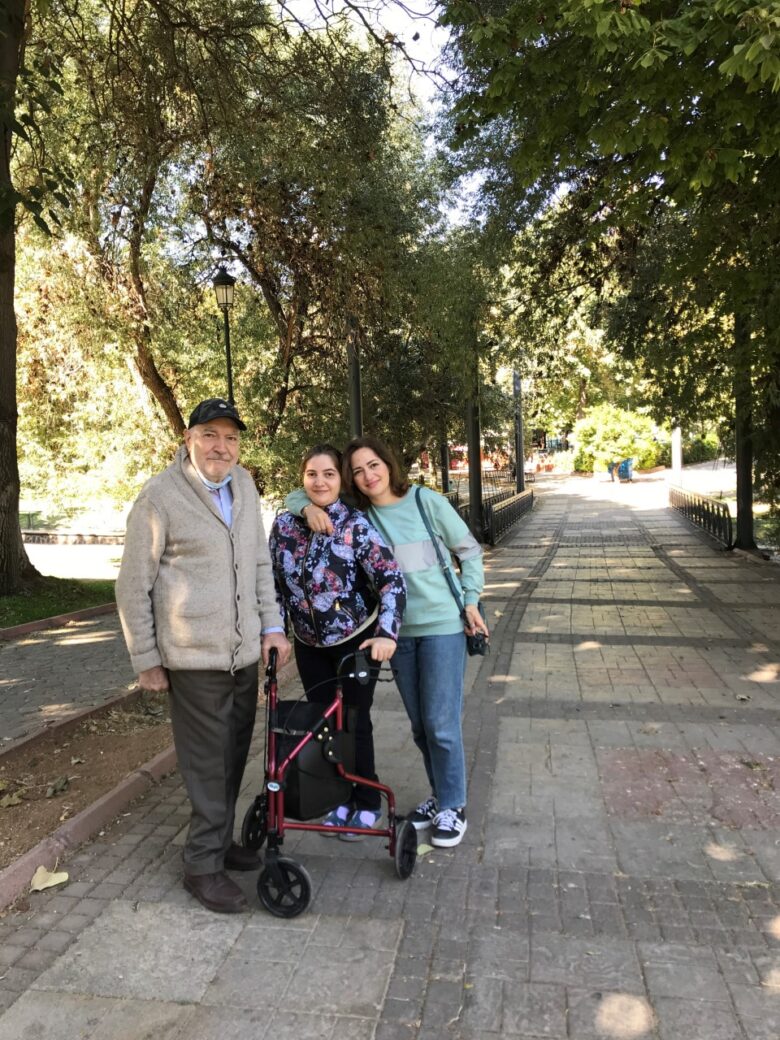
Deema (right) alongside her family.
We left everything behind; our homes, memories and the places we love.
We fled with our families (my family and my husband’s) to Gaziantep, Türkiye. Although the journey is usually two hours from Aleppo to Gaziantep, it took us more than half a day to arrive because we were trying to avoid the dreadful checkpoints.
When we arrived, we struggled to find a place to live as there were hundreds of thousands of refugees like us. We managed to find an apartment after we paid almost triple the rent, and we all stayed in one flat – all 17 of us.
We thought it would be a matter of a few months until we could return home, but we were mistaken. We did our best to resettle in Gaziantep. Things started to look up when my husband and I found jobs and received residency permits. We also managed to rent another place – my family and I lived in one flat and my husband’s family in another.
My two daughters were struggling to adjust to their new lives. I knew I had to do something for them to continue their education, so a group of us opened a small school for Syrian refugee children.
I was working at Gaziantep Municipality at the time. I discussed the possibility of opening the school with the mayor, and to my surprise, he fully supported the idea.
We opened an Arabic school and called it Al Sadaqa, Arabic for “friendship”. I taught mathematics.
Two years later, the school closed because the government required all Syrian refugees to enroll in Turkish schools – which was the right decision. Our children needed to learn Turkish to integrate.
We stayed in Türkiye for six years. I worked with many humanitarian organisations in Gaziantep that support Syrian refugees. I also founded my project Ulfah, Arabic for “familiarity”, that supported Syrian refugee women and their children to integrate into their new society.
Although we were financially stable, our situation was complicated; we didn’t have Turkish citizenship and renewing our residency wasn’t straightforward.
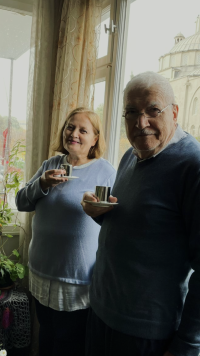
Deema’s parents
After four years in Türkiye, a new wave of racism against Syrian refugees started. My children were bullied a lot in school, simply because they were Syrians. We received many life-threatening notes to make us leave Türkiye. Our car was scratched, and the tyres were stabbed twice while parked outside the house.
I witnessed my elderly father being kicked out of a taxicab by an angry driver on a cold winter’s day because he didn’t like the fact that he was Syrian. My daughter, who was top of her class, was rejected from an excellent school for the same reason.
When our citizenship application was rejected and the racism worsened, I thought of my family’s future. I moved to the UK in 2019 and sought asylum here. A year later, I was able to bring my husband and children, but my family’s reunification application was rejected. We’ve been trying to reunite with them since then. Both of my parents are older and my sister, Mayya, is severely disabled.
This year, on the 6th of February at 4:30 am, I woke up from all the notifications on my mobile phone. I saw the news about the earthquake in my family’s area and immediately called them.
View this post on Instagram
They were still at home, terrified and hiding in the bathroom. I begged them to leave the house because aftershocks might happen, and the buildings outside were destroyed.
Although it was snowing heavily that day, my family managed to leave the building and went to a nearby mosque with everyone else. I was relieved that my parents and Mayya weren’t alone.
After the second earthquake, half of my parent’s house was completely destroyed. They lost all their belongings and were without their medication for quite some time.
My family’s life shattered for the second time.
We, Syrians, have experienced relentless death and destruction during our 12-year crisis, but the earthquake was worse than anything else we’d endured.
I had no one to take care of my older parents and sister. I tried calling friends, but no one answered. I discovered later that some of my friends and relatives had passed away.
We stayed in touch with my family whenever they had internet. The government later allocated certain places outside where people could connect and talk to their families. We agreed that every two hours, one of them would go there so we could talk.
Both my mother and sister were traumatised by what happened. Mayya still hasn’t fully comprehended it.
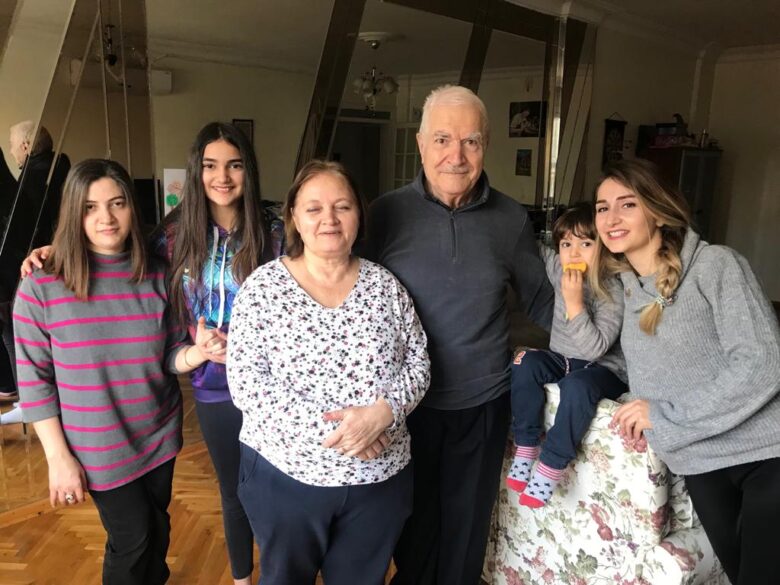
Thankfully, a friend was heading to Ankara and could take my family with him as it was safer there. We booked a hotel room so they could stay there.
My family are still there. We’re waiting for them to join us soon, as they have been granted a visa to the UK after the earthquake. We can’t wait to be finally reunited with them.
My personal experience has shown me the importance of standing with refugees. Refugees endure rough and terrible circumstances from the moment they are forced to flee their homes.
It’s not their decision so they’re not prepared for it most of the time; to leave everything behind and start over while taking care of their families and loved ones.
They’re also in constant fear of what’s coming next; where to go, ways to navigate life away from home, and ways to overcome traumas.
No words can describe the horror that my family and I had to endure because of the earthquake. I lived in constant fear of losing them as I did with many of my friends and relatives. However, knowing that we will soon be reunited, and they’ll be close by will hopefully heal that wound.
—
To learn more about how you can help people affected by the earthquake, please visit this page.


